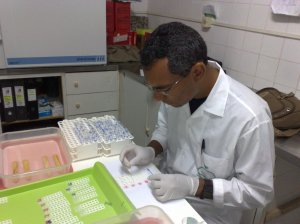Welcome everyone to this new blog Biomedicine in Society. The aim of this blog is to highlight the recent advances in the field of human life sciences in a way that is easy to understand, even for those without any scientific training. These advances will be explored in the context of current social, political and economic issues to help readers gain a better understanding of how discoveries made in labs across the world everyday can profoundly shape our lives.
First thing’s first: Let’s start off by defining the term ‘Biomedicine’ (a.k.a Medical Biology). Biomedicine can broadly be defined as the systematic body of knowledge we have about the cells and molecules which underpin life itself. This knowledge can help us understand the origin of the various forms of life that currently exist, as well as unravelling clues about how life is sustained. Understanding the processes that enable life to flourish can also help us understand how these processes may be altered in disease, thereby enabling development of new drugs. This is arguably the single most important goal of biomedical research. However, research advances often go beyond simply designing new treatments. For example, the new era of genome sequencing can allow scientists and clinicians to predict which patients are at risk of developing certain diseases (e.g. cancer, diabetes, cardiovascular disease) and assess the likelihood of patients responding to particular treatments. Thus, these risks may be mitigated by tailored lifestyle interventions and/or tailored therapies. To date, drug treatment has largely been a process of trial-and-error: give the same drug to all patients with a particular disease and hope that they all respond. In fact, not all patients respond and some even develop life-threatening toxicities because of treatment. This ‘wait and see’ approach will soon be consigned to the dustbin of history. The new era of ‘personalised medicine’ is coming closer everyday thanks to the incremental advances made in the biomedical sciences.
While the rapid rate of discovery in life sciences is undoubtedly a force for good, concerns exist regarding the wider impact of these new found developments. Recent examples of controversies include the development of a new drug for breast cancer Kadcyla, which the National Institute for Health and Care Excellence (NICE), the drug advisory body for the NHS, has ruled should not be made routinely available due to its £90,000 a year cost per patient. The question naturally arises: what good are these new drugs developed through our increased scientific understanding if they ultimately cannot enter the clinic? On the other hand, pharmaceutical companies argue that the high cost of these drugs reflects their mammoth expenditure on research and development. Who’s right and who’s wrong? can some compromise be found?
Similarly, the recent Ebola outbreak in Africa has lead to a push for experimental drugs to be used, which have previously not been trialled in humans or in primates. The World Health Organization (WHO) has deemed this approach to be ethical, although there is still much debate as to who should receive the limited supplies of these drugs. Why were no new vaccines against Ebola developed to date? What will be the impact of the current Ebola outbreak on research into this area and on the healthcare/scientific infrastructure in Africa?.
I hope I have been able to give a flavour of the kinds of issues this blog hopes to cover. Scientific discoveries impact on all of us, often in ways we don’t expect or can’t foresee. Instead of simply reiterating information already in news bulletins, this blog will give the historical context of biomedical discoveries and highlight their significance in a world where increased demand for medical advance takes place in a background of rapid technological advance coupled with economic, political and social uncertainty.
